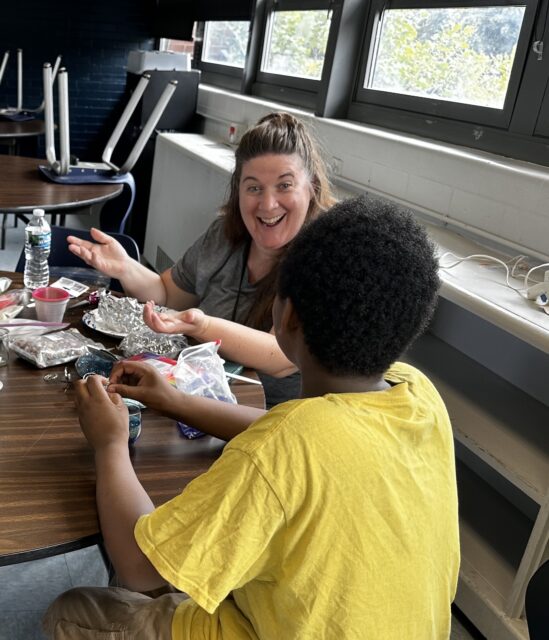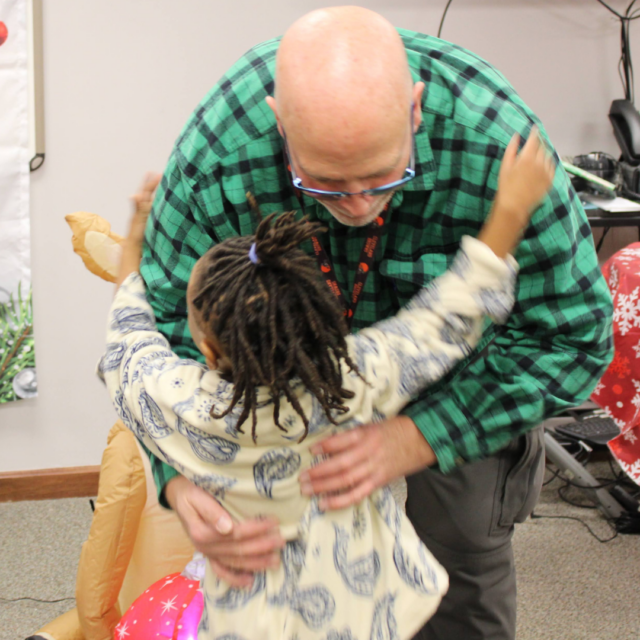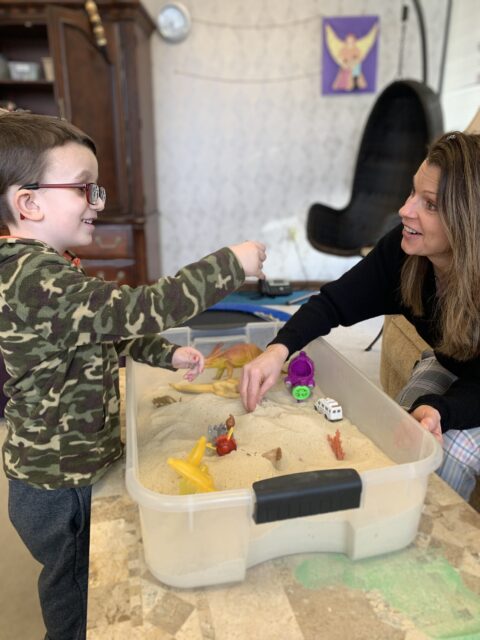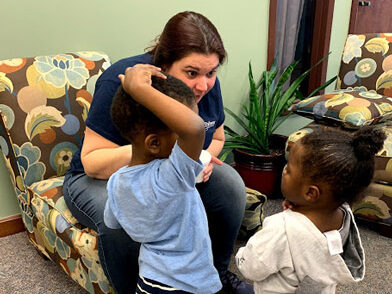
Teaching Coping Skills for a Brighter Future
At Pathway Caring for Children, we believe in nurturing resilience and equipping children and families with the tools they need to thrive. Our commitment to fostering hope and healing extends beyond providing a safe haven; we strive to empower individuals with essential coping skills that will serve them throughout their lives.
The Foundation of Emotional Well-being
Creating a Safe and Supportive Environment
Emotional well-being starts with a strong foundation. At Pathway, we focus on fostering an environment where children feel safe and appreciated. This includes:
- Open Communication: Encouraging open conversation guarantees that each child’s voice is acknowledged and appreciated.
- Consistency: Establish consistent routines and clear guidelines, giving children the framework to feel secure.
- Emotional Support: Acknowledge emotions and provide support, guiding children through complicated feelings.
- Physical Safety: Create a safe physical environment that enables children to concentrate on growth without fear.
Regaining Control and Confidence After Trauma
Many children we work with have experienced trauma. Our approach focuses on:
- Empowerment: Engage children in decision-making processes, allowing them a sense of control over their lives.
- Therapeutic Support: Our mental health services offer professional help tailored to each child’s needs.
- Positive Reinforcement: Celebrate small victories to build confidence step by step step.
- Routine: Establishing predictable routines provides the stability necessary for healing and growth.

Building Blocks of Resilience
Encouraging Self-Regulation and Decision-Making
Self-regulation is a crucial skill for lifelong success. Focus on:
- Modeling Behavior: Show adequate self-control and sound decision-making skills.
- Clear Boundaries: Establish and maintain consistent boundaries, instilling respect for oneself and others.
- Problem-Solving Skills: Children learn and practice techniques to address challenges independently.
- Autonomy: Offer age-appropriate options that encourage independence.
The Role of Routines in Emotional Stability
Routines play a vital role in a child’s sense of security. At Pathway, we emphasize:
- Predictability: Offering an understanding of what to expect, thereby alleviating anxiety.
- Independence: Through structured activities, we encourage children to take on responsibilities.
- Stress Reduction: Understanding upcoming events aids children in reducing stress effectively.
- Time Management: Instill essential time management abilities via daily routines.

Fostering Connections and Emotional Intelligence
Building Positive Relationships
Strong, healthy relationships are essential for emotional well-being. We emphasize on:
- Social Skills: Instruct and demonstrate positive social interactions.
- Encouragement: Foster opportunities for engagement in group activities to enhance social confidence.
- Role Models: Children engage with positive adult role models, gaining knowledge through example.
- Conflict Resolution: Instruct on key skills for handling disagreements constructively.
Identifying and Expressing Emotions
Emotional intelligence is key to personal growth. Our approach includes:
- Emotional Vocabulary: Assist children in broadening their emotional vocabulary to enhance self-expression.
- Modeling: Demonstrate healthy emotional expression by providing real-life examples.
- Safe Spaces: Create environments where children can express their feelings freely.
- Active Listening: Practice and teach active listening to encourage understanding and empathy.
Practical Coping Techniques
Age-Appropriate Coping Strategies
We tailor our coping techniques to suit different age groups:
- Breathing Exercises: Simple calming techniques that even young children can master.
- Physical Activity: Encourages stress release through age-appropriate physical activities.
- Creative Outlets: Art, music, and writing are emotional outlets in our programs.
- Mindfulness: Introduce age-appropriate mindfulness practices to enhance focus and calm.
Relaxation and Mindfulness Practices
Our programs incorporate various relaxation techniques:
- Deep Breathing: Instruct on controlled breathing exercises to manage stress.
- Guided Imagery: Children learn to use imagination as a tool for relaxation.
- Progressive Muscle Relaxation: Practice tightening and loosening muscle groups to alleviate physical tension.
- Mindfulness Activities: Simple exercises like focusing on the senses help children stay present.
Identifying Triggers and Creating Coping Methods
Understanding personal triggers is crucial for emotional management:
- Awareness: Guide children in recognizing their triggers by engaging in conversation and careful observation.
- Coping Plans: Create tailored strategies for various challenging situations.
- Practice: Regularly practicing coping skills in a safe environment enhances their effectiveness.
- Support: Offers continuous encouragement and guidance in utilizing these skills.

Pathway’s Comprehensive Support Services
Foster Care and Post-Adoption Services
Our foster care and post-adoption programs provide:
- Therapeutic foster homes designed for children with specific emotional or behavioral needs.
- Support for sibling groups and teens in foster care.
- In-depth post-adoption support services for families.
Mental Health Services
Our mental health support includes:
- Therapy sessions, both individual and group, are customized to meet the unique needs of each child.
- Mental health support in schools across various districts.
- Early Childhood Mental Health programs for the youngest members of our community.
Transitional Age Services
We support young adults transitioning out of foster care with:
- Life skills training is essential for independent living.
- Guidance on education and career pathways.
- Ongoing support as they navigate early adulthood.
Family Empowerment Program
Our family-focused services offer:
- Resources and support for foster, post-adoptive, and kinship families.
- Tools to help families manage challenges and build stronger relationships.

Care and Support: The Pathway Difference
At Pathway Caring for Children, our approach goes beyond individual programs. We offer:
- Trauma-informed care practices across all our services.
- 24/7 support for foster families, ensuring help is always available.
- Community building initiatives to create a network of support.
- Ongoing training and education for caregivers to enhance their skills.
- Advocacy for children’s needs at local and state levels.
Join Us in Making a Difference
Your involvement can change lives. Here’s how you can help:
- Become a foster parent and offer a nurturing home to a child in need.
- Volunteer your time to support our programs and events.
- Donate to fund life-changing experiences and services.
- Spread awareness about the importance of supporting foster youth and adoptive families.
At Pathway Caring for Children, we’re committed to helping every child and family realize their full potential. Through our extensive services and dedication to teaching essential coping skills, we’re building a foundation for lifelong success and emotional well-being.
Together, we can create a future where every child has the support, stability, and skills they need to thrive. Join us in our mission to strengthen the lives of children and families across Ohio.
Contact Pathway Caring for Children today to learn more about our services or how you can get involved. Your support can be the turning point in a child’s life, offering hope, healing, and a brighter future.